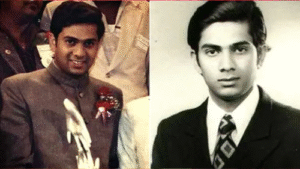Prakash Padukone made history by winning India’s first-ever gold medal in badminton at the 1978 Commonwealth Games (CWG) in Edmonton, Canada. This victory marked a significant milestone in the history of Indian sports, especially in badminton, where Padukone became a pioneer for future generations of Indian players.
Prakash Padukone, at the time, was one of India’s top badminton players, and his performance at the 1978 CWG solidified his place as a legend in the sport. He was seeded as a strong contender for the gold medal, and he lived up to the expectations.
Pre-Final Matches: Padukone showcased his brilliance and skill throughout the tournament, defeating tough competitors in the earlier rounds, and making his way to the finals of the men’s singles event.
Final Score: Prakash Padukone defeated Ray Stevens of England in the final with a 21-18, 21-17 victory.
Victory Significance: This win made Padukone the first Indian to win a gold medal in badminton at the Commonwealth Games. His victory was a groundbreaking moment, as it not only secured India’s first gold in badminton at the CWG but also helped raise the profile of badminton as a competitive sport in India.
India’s First Badminton Gold: Prior to Padukone’s win, badminton had been largely overshadowed by other sports in India. His victory at the 1978 CWG brought national attention to the sport and opened the door for future generations of players in India to achieve success in international badminton tournaments.
Pioneering Moment: Prakash Padukone’s gold medal was a pioneering achievement that inspired future Indian badminton legends like P.V. Sindhu, Saina Nehwal, and Lakshya Sen. It demonstrated that Indian players could compete with and defeat the best in the world, marking the beginning of India’s journey to becoming a force in international badminton.
Post-CWG Success: After his success at the 1978 CWG, Padukone continued to shine on the global stage. In 1980, he won the All England Open Badminton Championships, one of the most prestigious titles in the sport. He became the first Indian to win this title, further cementing his legacy as one of the greatest badminton players in India’s history.
Influence on Future Generations: Padukone’s victory at the 1978 CWG not only made him a national hero but also played a major role in the development of badminton in India. His success was instrumental in the growth of the sport in the country, inspiring a new generation of athletes to take up badminton seriously.
Mentorship and Contribution to Indian Badminton: After retiring from competitive badminton, Padukone continued to contribute to the sport by coaching and mentoring young players. His Padukone-Dravid Centre for Sports Excellence, co-founded with former cricketer Rahul Dravid, has played a significant role in developing talent in badminton and other sports in India.
Prakash Padukone’s victory at the 1978 Commonwealth Games in Edmonton was a historic moment for Indian sports. It was the first gold medal for India in badminton at the Commonwealth Games and set the stage for the sport’s development in the country. Padukone’s achievement not only helped raise the profile of badminton in India but also inspired future generations of players to pursue excellence in the sport. His legacy continues to live on through his contributions to Indian badminton, both as a player and as a mentor.







